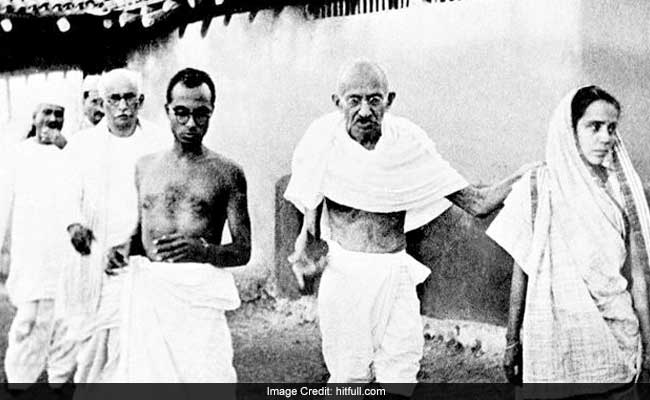
- India would be celebrating its 70th Independence Day on 15th of August
- India attained the freedom from British rule in the year 1947
- Mahatma Gandhi launched the campaign against the Salt Tax in 1930
India would be celebrating its 70th Independence Day on 15th of August 2017. Come Independence day, and one can't help but sense the overwhelming vibe of patriotism, pride and a feeling of gratitude to the sacrifices of the heroes who laid down their lives to help us attain the freedom from British rule in the year 1947. India's freedom struggle counts for one of the most significant rebellions in the modern history, which took endless political negotiations, revolts, insurgence, and mutiny over a span of 190 years. While we have a number of heroes to thank for the free air we breathe, it is interesting to note that a pinch of our humble salt also played its own little role in the uprising.
Back in late 1920's when the rebellion against the British colonisers was in its full fore, leaders and politicians of the country recognised that before fighting the British, we must resolve our own conflicts within ourselves and come together as one force against the common enemy. Leaders and revolutionaries employed many symbols and slogans to do so, amongst the most impactful ones were the Flag, the Charkha, and chants like 'Inquilab Zindabad', and 'Angrezo Bharat Chhodo'. Another of these symbols was salt, and the famous salt march initiated by Mahatma Gandhi in the year 1930, which incidentally also kicked off the Civil Disobedience Movement.
The Salt March to Dandi and its Significance In The Freedom Movement
Mahatma Gandhi pitched an 11 point demand before Lord Irwin (the then Viceroy of India), warning that if the government doesn't accept the demands, it would necessitate the launch of the mass rebellion. One of these demands was the abolition of the salt tax and governments monopoly over salt production. The India Salt Act of 1882 gave the government monopoly over the collection and manufacture of salt. The government declined the demand. And sensing the universal appeal of the issue Mahatma Gandhi launched the Satyagraha campaign against the Salt Tax in March 1930. He marched 388 kilometers from Ahmedabad to Dandi in Gujarat on foot. Thousands of people joined in making it one of the biggest marches in the Indian history. Also, marking India's first largest mass uprising against the British. At Dandi, Gandhiji violated the Salt Law by making salt without payment of duties, thereby threatening the British monopoly.

Significance of Choosing Salt
Of all the 11 demands pitched, the demand of freedom of Salt Tax had the most emotional appeal. Salt was a common item of consumption in every household, taxing salt would amount to taxing every section of the society for something as basic as salt. Also, salt was manufactured from saline sea water hence imposition of heavy duty was not only immoral, but unfair to the poor. It is said that those who manufactured their own salt in secret were punished by the state with heavy duty. Thus salt was chosen, to symbolise a common man's defiance against the British rule that was increasingly becoming unethical and repressive in nature.

Gandhiji launched the satyagrah movement to abolish salt tax
The movement united masses from every section of society, as salt was a commodity that united both the rich and the poor. It also became the first movement where mercantile and industrialist community participated and donated massive funds to the Congress in support of the movement. The wide range of support and love garnered by the movement helped India win its first moral victory over the English, and paved way for new political ideas and methods to strengthen their rebellion against them.
Happy Independence Day!
Track Latest News Live on NDTV.com and get news updates from India and around the world

